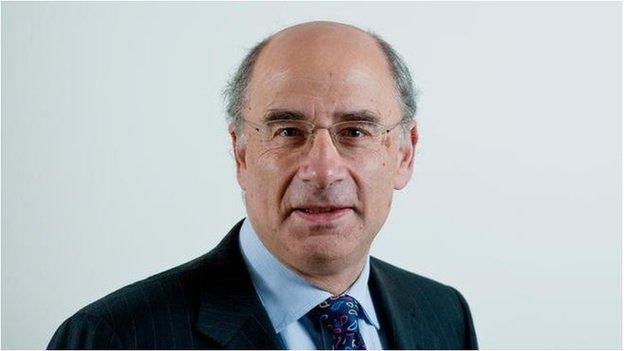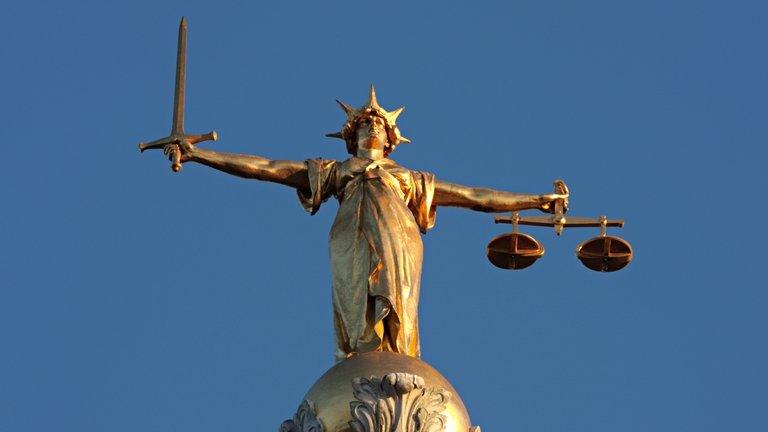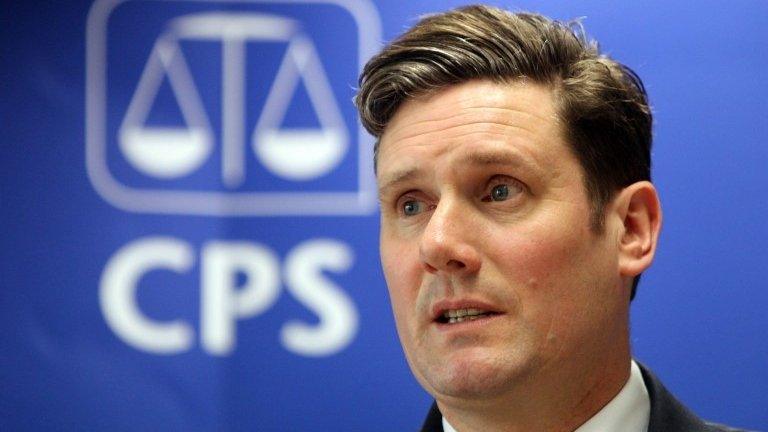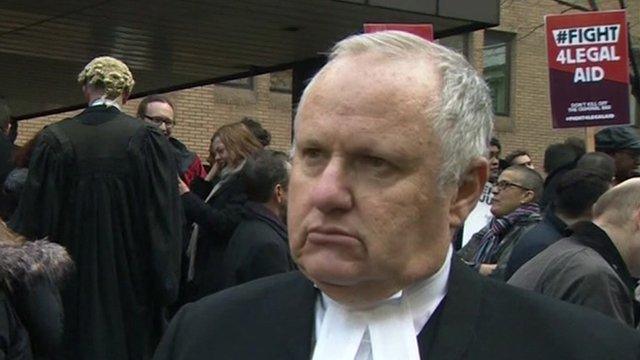Inefficient court system should be streamlined, Leveson says
- Published

Lord Justice Leveson said many reforms had been "bolted on" to the justice system over the years
A senior judge has set out plans to "streamline" the "inefficient, time consuming and... very expensive" justice system in England and Wales.
Among Lord Justice Leveson's ideas are more use of evidence from cameras worn by police, and flexible court hours.
The BBC's Clive Coleman says parts of the report, external could "dramatically change the criminal justice system", affecting the right to opt for trial by jury.
The government said it wanted to work with judges to improve the system.
It has already announced a £160m scheme, external to replace courts' "outdated paper-based system" with "digital courtrooms".
Lord Justice Leveson, the third most senior judge in England and Wales, said the criminal justice system must expect "diminished resources for years to come" and needs to be efficient.
His report, commissioned by the Lord Chief Justice, also calls for government money to fund the changes.
His recommendations, which he said would not require legislation, include:
more use of technology to allow "remote hearings"
"tighter case management" by judges, including, in appropriate cases, the provision of timetables for evidence and speeches
more "high-quality equipment" in courts to ensure footage from police body-worn cameras can be shown
"flexible opening hours" in magistrates' courts to accommodate those who cannot attend during normal working hours
contracts requiring "greater efficiency" from those who deliver prisoners to courts, to avoid delays

Analysis
By Clive Coleman, BBC legal affairs correspondent
Lord Justice Leveson has made recommendations largely about technology and procedures, that don't require legislation.
However, in Part 10 of his report he covers potentially radical changes - many of which have been discussed for years - that could dramatically change the criminal justice system. Such changes would be for parliament to decide, but Leveson is nudging it to look at these.
One is the defendant's right to choose jury trial for offences that can be tried either in the magistrates or crown court. Many who Lord Justice Leveson consulted wanted the court rather than the defendant to have the power to decide whether trial was to be in the magistrates court or in crown court - where trials are far longer and more expensive.
The right to jury trial began in the 19th Century, at a time when defendants had much less legal protection.
Is it still right that a defendant can decide to have a jury trial for stealing a newspaper from a shop? Or should that now be decided by an independent judge?

The judge, who previously led the inquiry into the culture, practice and ethics of the press, said the government should make money available to meet the "inevitable cost of changing from the current systems to the more efficient ones".
"The changes I have recommended are all designed to streamline the way the investigation and prosecution of crime is approached without ever losing sight of the interests of justice," he said.
"Our conduct of criminal trials was designed in the 19th Century with many changes and reforms bolted on, especially over the last 30 years.
"The result is that it has become inefficient, time consuming and, as a result, very expensive."
Remote evidence
Lord Justice Leveson also wrote in his report that the practice in some courts of evidence being given remotely, both by victims and witnesses, should be expanded across the country.
"The use of modern IT can and should go much further," he said.
NSPCC legal expert Lisa McCrindle supported the idea of using technology to allow victims, such abused children, to give evidence away from a court building.
"Attending criminal proceedings is often an extremely stressful experience for children, particularly as they may encounter their abuser during the hearing," she said.
"Anything that reduces that risk and allows victims to give their best evidence has to be welcomed."
Investment 'vital'
Bill Waddington, chairman of the Criminal Law Solicitors' Association, said the report "demonstrates the disastrous impact that criminal legal aid cuts will have on law firms if they are required to invest in new IT systems while having to take another fee cut.
"This will only delay the implementation of Lord Leveson's recommendations, restricting the choice of defendants further still.
The association does "not agree that jury trial should be restricted," he added.
Alistair MacDonald QC, chairman of the Bar Council, said reform of parts of the criminal justice system was "long overdue".
He said: "Many of the efficiency savings identified by the review rely on investment in IT.
"It is, therefore, vital to the effective implementation of these efficiency savings that the money allocated by Ministry of Justice, announced last year, is made available for investment."
- Published19 January 2015
.jpg)
- Published9 September 2014

- Published8 January 2014

- Published6 January 2014
